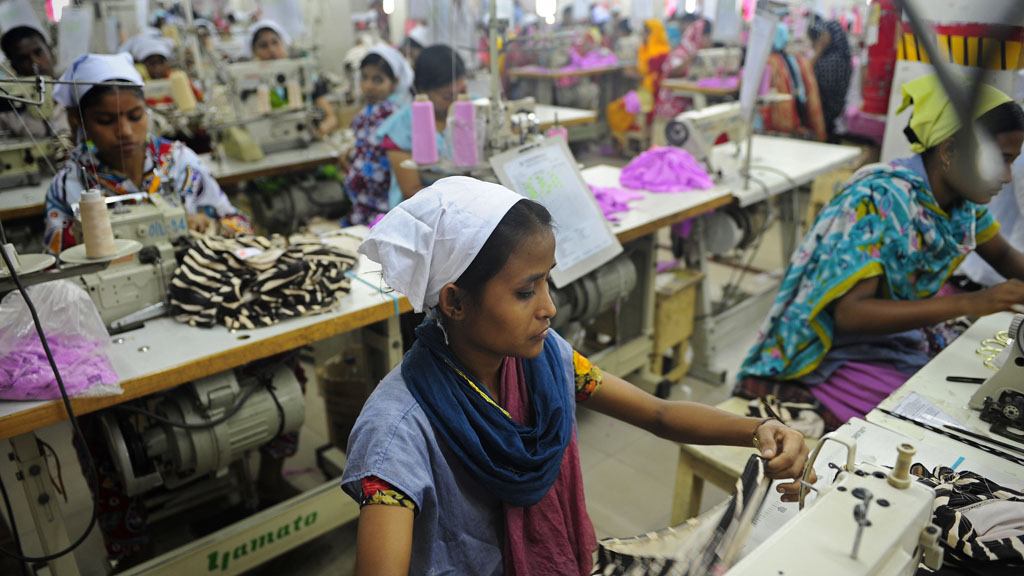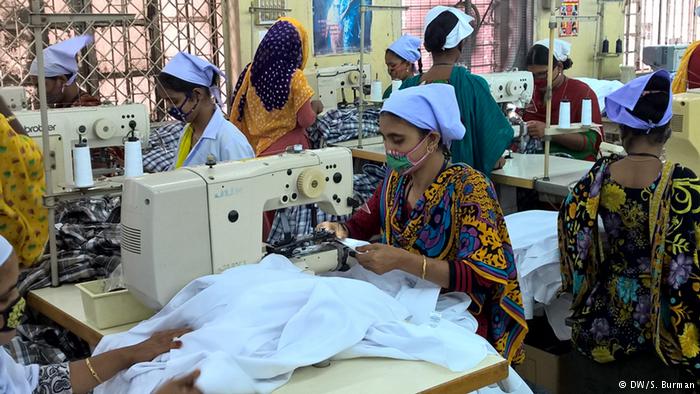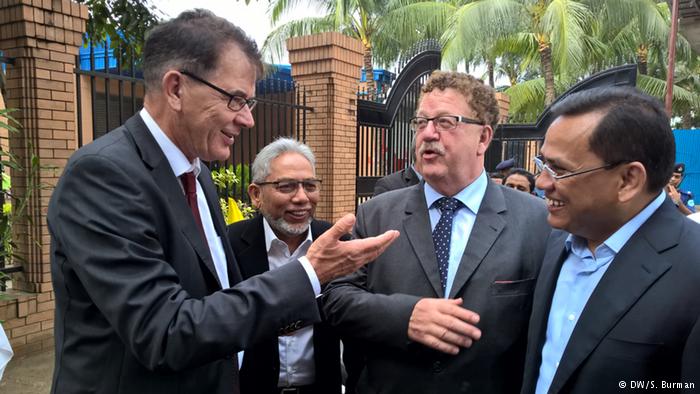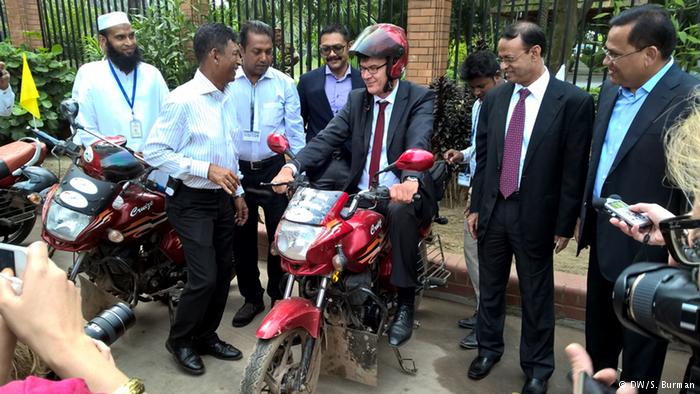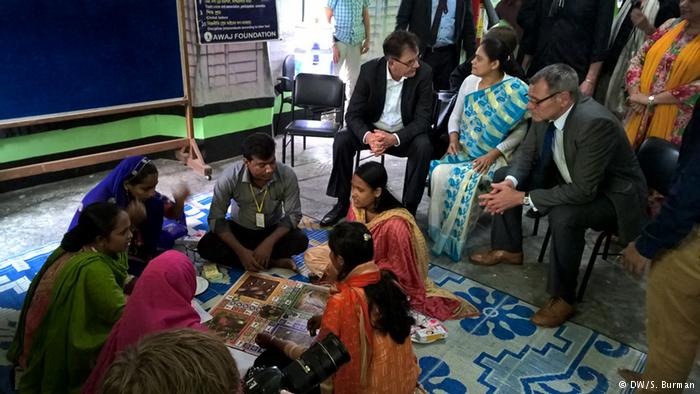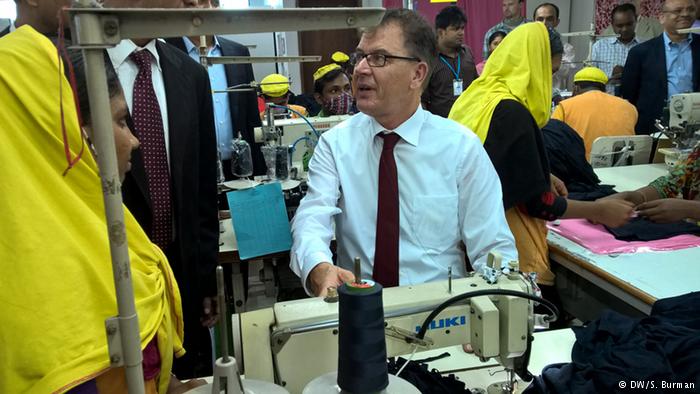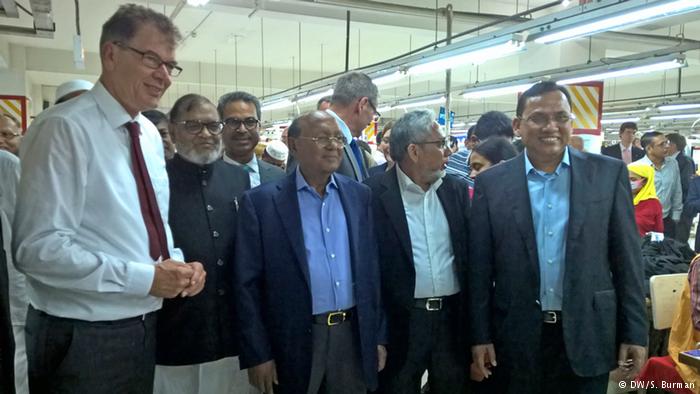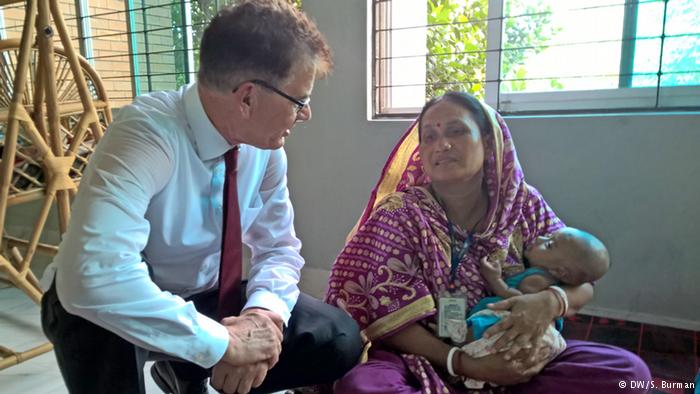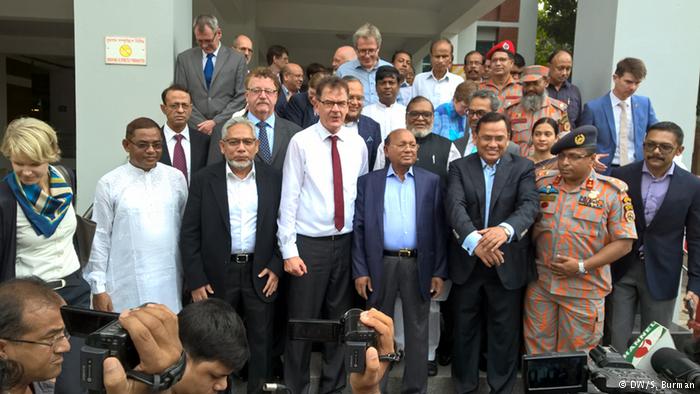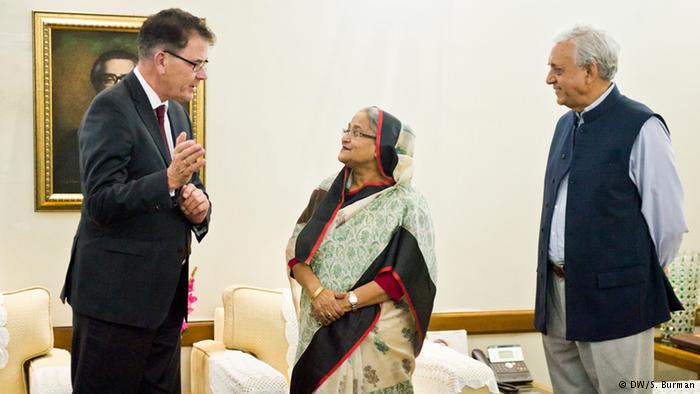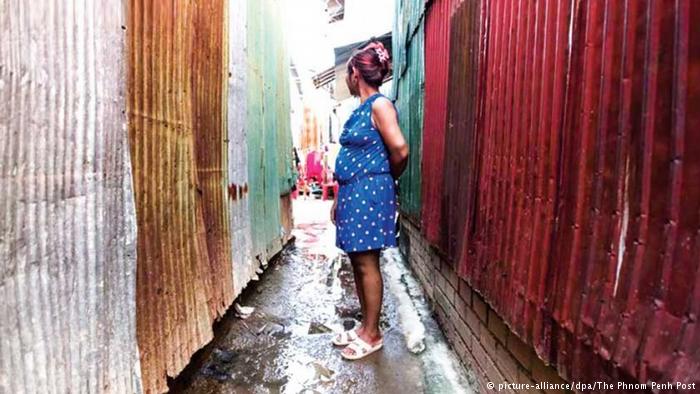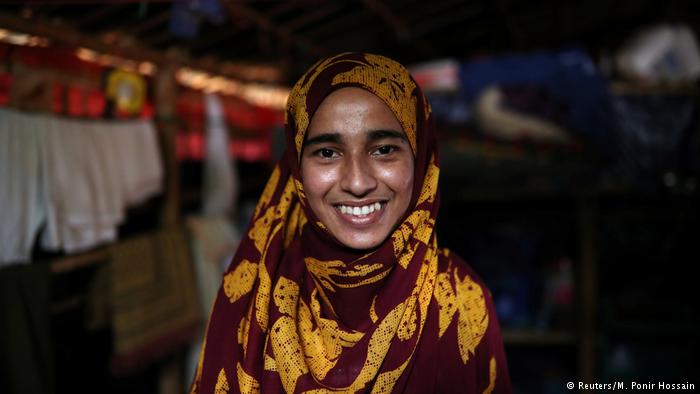Better safety for Bangladesh’s garment industry
After the Rana Plaza garment factory collapsed in 2013 and killed more than 1,100 people, Germany set up an initiative to improve working conditions in Bagladesh’s clothing industry. DW explores how much progress has been made.
‘Made in Bangladesh’
Bangladesh is the second-largest clothing exporter in the world, after China. Since the garment factory collapse of 2013, Bangladesh has been receiving unprecedented attention. Several inititatives were set up to help the country’s factories improve working conditions and safety for garment workers.
Momentum for change
One of Bangladesh’s major textile companies, the DBL group, joined the ‘textiles partnership’ and has implemented several measures. German Minister for Economic Cooperation and Development Gerd Mueller praised their efforts, saying he hoped that this would set a precedent for other companies.
Inspectors on motorcycles
Some 150 inspectors have received training to monitor the working conditions and environment in the country’s factories. Equipped with motorcycles, the inspectors are alert and ready in case of an emegency.
Supporting women
Most of the predominantly female textile workers are not aware of their employment rights. Special ‘women’s cafes’ have been established where they can receive training, for instance, in how to negotiate with their employers. To raise the level of awareness they make use of the game of Ludo.
In the hot seat
Gerd Mueller gets an insight into the working conditions of textile factory workers in Bangladesh. Many women frequently work up to 14 hours a day in harsh conditions. Germany’s Textile Partnership initiative aims to improve the circumstances which dictate their working lives.
Political backing
Gerd Mueller, along with Bangladesh’s Commerce Minister Tofail Ahmed, visited the factories of the DBL Group in Gazipur. The state is a key agent in the Textile Partnership.
Child care services
As part of the workers’ welfare initiatives, factories are being encouraged to set up day-care centers to take care of the children while their mothers are busy working to meet company targets.
A show of unity
Both the German and Bangladeshi governments, as well as manufacturers, buyers and all other stakeholders in the supply chain are adapting to the changes. Although the situation has improved substantially since the Rana Plaza disaster, much more work needs to be done.
An ambitious plan
By 2021, the Bangladeshi government plans to export $50 billion worth of garments. Bangladeshi Prime Minister Sheikh Hasina discussed the ambitious plan with German minister Gerd Mueller during his visit.
Author: Sanjiv Burman
Editor: Marjory Linardy
WTO RECOMMENDS
Rape is a woman’s fault, says Bangladesh police
You will probably not believe this. It was hard for me to digest as well, but this police officer repeatedly said that girls should properly cover themselves to avoid being raped. He told this to a female journalist while sitting in a police station. (From November 27, 2014)
Bangladesh shelves plan to lower marriage age
After widespread criticism on social media, Bangladesh government has changed its plan to lower the marriage age. The minimum legal age of marriage will remain 18 for girls and 21 for boys, according to local media. (From Oktober 20, 2014)



